A match made in music
Fischoff National Chamber Music Competition at Notre Dame celebrates 50 years of music performance, education
From humble beginnings, the Fischoff National Chamber Music Competition has grown into the largest and longest-running chamber music competition in the U.S., partnering with the University of Notre Dame to encourage and educate young musicians and deliver free musical programming to South Bend-area youth along the way.
On Saturday (Jan. 28), the nonprofit organization will kick off its 50th anniversary with a gala celebration at the Palais Royale, featuring two-time Grammy Award-winning ensemble and Fischoff alumni Pacifica Quartet.
In addition, the organization plans to highlight past winners throughout the year on social media and host special festivities during the 50th competition, May 12 to 14 at Notre Dame. It has also co-commissioned a new piece of music from Grammy-nominated, New York-based British composer Anna Clyne. Composed for string quartet and chamber orchestra, the piece will be performed by Fischoff alumni the Euclid Quartet and the South Bend Symphony Orchestra (SBSO). It will premiere Oct. 22 at Notre Dame, celebrating both Fischoff’s 50th anniversary and SBSO’s 90th anniversary.
Prize money for this year’s competition has also been increased.
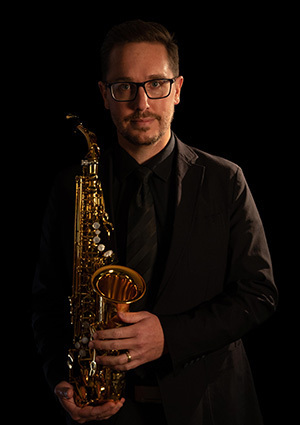
“It’s a celebratory year,” said Scott Campbell, executive director of Fischoff, “and we really are wanting to take time to celebrate not only the competitors of the past, but also those who have helped to support us over the years.”
That includes Notre Dame, which is celebrating its own anniversary this year as host of the competition, and a key partner to Fischoff, for 21 years.
“We are so grateful for Notre Dame,” Campbell said. “The University has been incredibly helpful and kind and supportive.”
“As an institution committed to both education and the arts, Notre Dame is proud to host the Fischoff Competition and partner with organizers to promote music education around the globe,” said Tim Sexton, associate vice president for public affairs at Notre Dame. “Fischoff introduces hundreds of young musicians to Notre Dame each year, providing innumerable benefits — social, cultural, economic — to campus and the surrounding community. We congratulate them on 50 years and look forward to the next 50.”
Focus on education
Chamber music is a form of classical music composed for a small group of instruments, with one performer to a part. Typically, it is performed in an intimate setting, such as a home. It reached its peak as a form of popular music in the pre-industrial era, before the invention of the phonograph and, much later, the radio. But it has enjoyed a renaissance of late thanks to organizations such as Fischoff, which see education as a critical tool for promoting classical music, and chamber music in particular, to a wider audience.
From the outset, the Fischoff Competition has aspired, primarily, to encourage and educate young musicians in the discipline and expression of chamber music. To that end, it encourages engagement between jurors and musicians during the competition. It also partners with competition alumni to deliver free, innovative music programs to South Bend-area youth. This includes its signature Fischoff Academy, a scholarship-based mentorship program for aspiring musicians in the South Bend-Elkhart community.
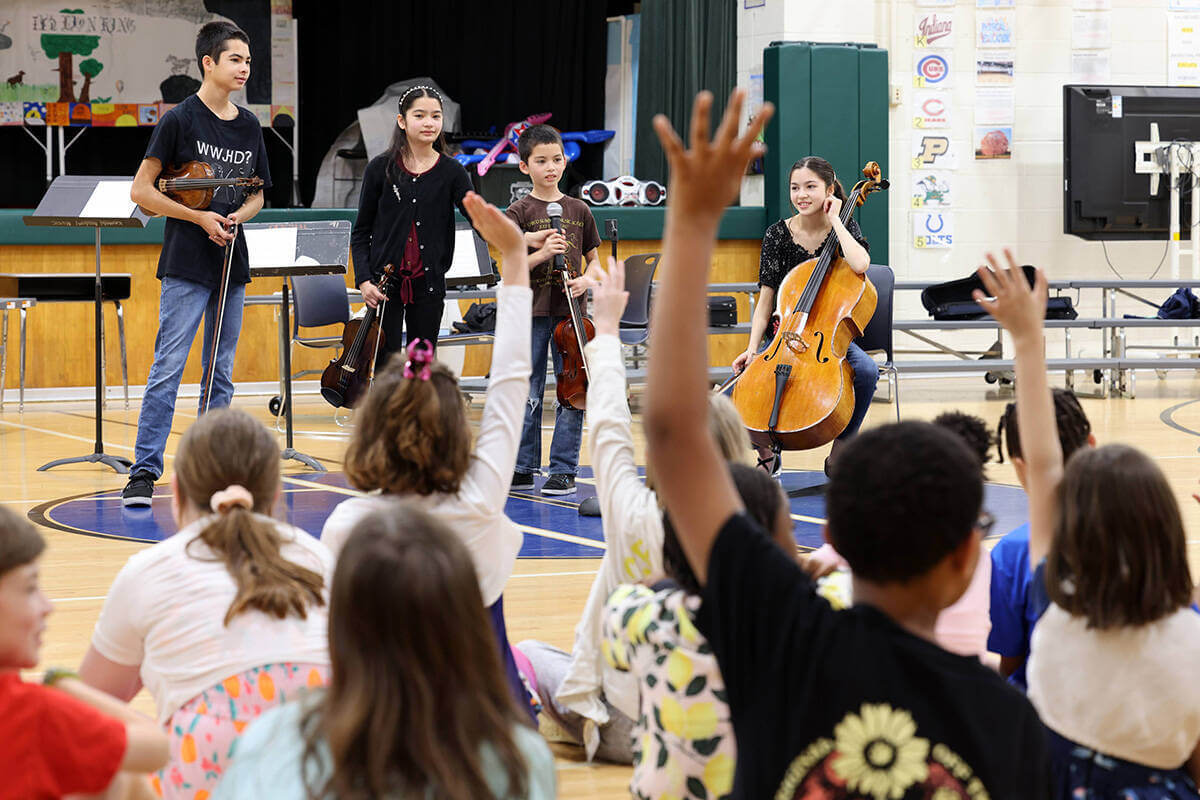
The organization has served more than 95,000 children since 1995, many from under-resourced Title 1 schools in the South Bend community. It hopes to reach 100,000 this coming year. At the same time, it hopes to build on that foundation to increase outreach even further moving forward.
“For a long time, chamber music was not really a thing among high schoolers,” said Kara Kane, education director and recent former executive director of the competition. “But now, it really has a big following, in private programs, local youth orchestras, even public school band programs.”
The message to competitors, Kane said, is consistent: “No matter what the outcome is, please use this as an opportunity to collaborate with your peers and take feedback from the judges to heart.”
Humble beginnings
Seeking an innovative way to encourage young people to study and perform chamber music, Joseph E. Fischoff and others in the South Bend Chamber Music Society launched the Fischoff Competition with a focus on music education in 1973. They hatched the idea over lunch at the former Summit Club in South Bend, Kane said, starting from the question, “How do we create an environment for kids and students to compete and love chamber music as much as we do?”
Born in Hungary, Fischoff moved to South Bend as a child, graduating from South Bend High School in 1925. As a young man, he simultaneously attended the Wharton School of Business, where he earned a degree in economics, and the Curtis Institute of Music, where he studied chamber music with the violinist Louis Bailly.
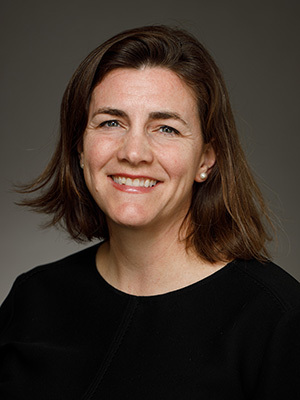
Over the years, his namesake competition has grown from six ensembles to more than 100, and from about $500 in prize money to about $60,000. Today, participants compete in two divisions, junior and senior, across two categories, string and wind. Winners receive as much as $10,000 in prize money, plus the opportunity to tour, record and perform live on NPR. 2022 Gold Medal winners Mixed Media and Terra String Quartet recently finished touring the Midwest, where they presented concerts and educational programming to children and adults. Last year’s grand prize winner, Terra String Quartet, will perform at the Emilia Romagna Festival in Italy in summer 2024.
On a smaller scale, competing ensembles perform locally each year during competition weekend at established venues such as the Howard Performing Arts Center at Andrews University, local schools and houses of worship, and even private residences.
Overall, more than 7,800 musicians, from dozens of states and countries, have competed in the Fischoff Competition since its founding, with many going on to distinguished careers in music performance and education. That includes Indiana native and Grammy Award-winning violinist Joshua Bell, Grammy Award-winning ensemble Eighth Blackbird and the aforementioned Pacifica Quartet.
Still, education remains at the heart of the whole thing, Kane said.
“I think for Joe Fischoff, the original intent was to spread the love of chamber music,” Kane said. “For him, it was about the collaborative work that chamber music lends itself to. In a quartet, four really strong musicians come together to create something bigger than themselves. So while the prizes are exciting, we’re really trying to position the participating musicians as ambassadors for this art form.”
Notre Dame and ‘greater notoriety’
For its part, Notre Dame has been involved in the competition in at least some respect from the start. Faculty served as jury members early on, and the University has been among the major sponsors of the event for decades. In 2002, the competition moved to Notre Dame from Indiana University South Bend (IUSB) with the encouragement of then-vice president for graduate studies and research Nathan Hatch, taking advantage of the newly constructed DeBartolo Performing Arts Center and its 840-seat Leighton Concert Hall. The Fischoff National Chamber Music Association, which hosts the annual competition, relocated to campus as well. Today, it occupies donated space on the ground floor of Haggar Hall.
“When Fischoff really reached the point of some serious prestige, that’s when discussion was going on about perhaps we should be going to Notre Dame’s campus. And Notre Dame, you know, brought us in and brought us greater notoriety,” Campbell, the executive director, said.
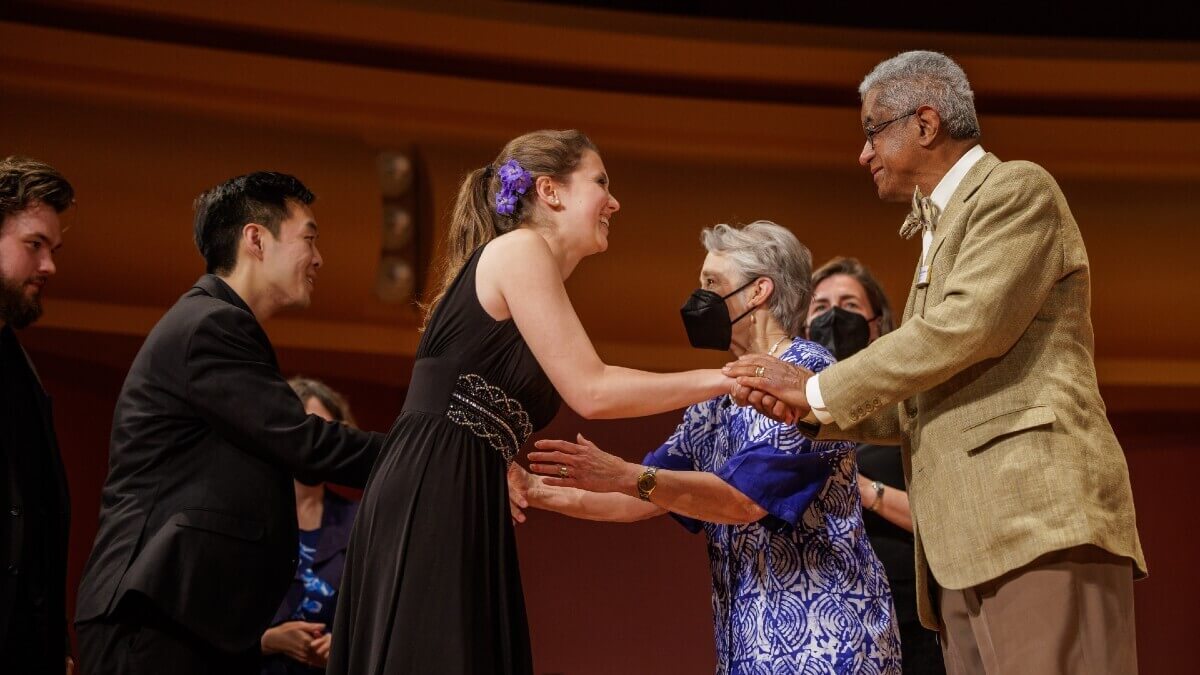
Until recently, Notre Dame President Emeritus Rev. Edward “Monk” Malloy, C.S.C., served as honorary chair of the competition. Michael Pippenger, vice president and associate provost for internationalization at Notre Dame, is a member of the board.
"Notre Dame is proud to help support Fischoff in bringing chamber music to South Bend and the surrounding community," Pippenger said. "As we celebrate Fischoff at Fifty, we are honored to be a part of a movement that brings outstanding musical performances and education to school children, university students and citizens alike. Notre Dame is also pleased to be a part of the conversation that has led Fischoff to create the Lift Every Voice prize, which seeks to celebrate diversity in chamber music, bringing new performers to underrepresented music in the chamber music cannon."
Today, Kane said, Notre Dame and Leighton Hall are “synonymous, visually, with Fischoff.” “You see Leighton Hall in a photo and you think, OK, that’s Fischoff,” she said. “You just know.”
She praised Notre Dame for its support of the competition all these years and “for help(ing) us to survive and to grow to where we are today.” The relationship proved especially beneficial during the pandemic, she said, when the competition had to move to a virtual format for two years because of travel bans and limits to in-person gatherings.
“We were able to leverage the expertise of ND Studios to successfully run the competition during the pandemic,” she said, noting how the majority of ensembles travel to the competition each year from outside the U.S.
She also praised the South Bend community for rolling out the welcome mat for the event and infusing it with a uniquely Midwestern spirit and sensibility.
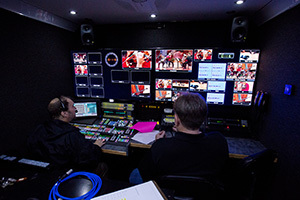
“We really do feel that being in South Bend has been a huge benefit,” she said. “There have been times over the years where other communities have offered to host the competition, but every time we come back and look at it, it’s South Bend. It’s who we are. It’s this gem. People really support us.”
Campbell witnessed this firsthand after moving to the South Bend area from Texas, where he was an adjunct professor of music and maintained a saxophone studio with more than 80 students.
“To realize that (the competition is) so locally supported, the whole community that’s behind it and that helps to support it in so many ways — time, talent, treasure — was really inspiring,” Campbell said.
A magnet for talent
From the opposite perspective, for South Bend and Notre Dame, the competition offers exposure on an international level, as well as access to vital educational resources at a time of increasing cuts to public music education. It also offers tax and business revenue from the hundreds of visitors who flock to the competition each year from around the globe, patronizing local stores and filling local hotels and restaurants.
For Notre Dame, it also serves as a valuable marketing tool, helping to burnish the University’s reputation for music performance and education and expand its global reach — key factors in attracting the most innovative and gifted students, faculty and staff to campus.
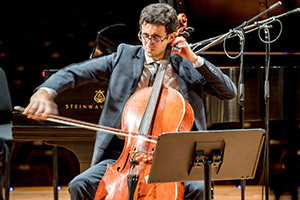
To that end, Kane pointed to the example of Alex Mansour. A recent graduate in music, Mansour first fell in love with Notre Dame through Fischoff. An award-winning composer, cellist and pianist, he currently performs and composes concert and film music in Los Angeles. His younger sister, Ronnie Mansour, also studied music at Notre Dame, following in her brother’s footsteps. She is currently pursuing a graduate degree in musical theater writing at the NYU Tisch School of the Arts in New York.
“Alex Mansour came to Fischoff as a junior in high school from California and fell in love with Notre Dame,” Kane said, “and look what he’s doing now.”
Fischoff alums also help to enliven the local music scene, Kane said. Three of the four members of the award-winning Euclid Quartet, based at IUSB, and several SBSO members are former Fischoff competitors.
Kane herself is a former Fischoff volunteer.
“I first came to Fischoff as a volunteer in 2012,” she said. “My friend from Rice University in Houston who was playing in the Houston Ballet told me to look up Fischoff. He loved competing at Fischoff in high school at Interlochen Center for the Arts. So I volunteered and here I am, working as director.”
It’s a common story, Kane said. Fischoff’s artistic director, Thomas Rosenberg, is celebrating 43 years with the organization. Competition Director Miki Strabley has been around for 22 years and Media Director Carrie Lehman for 26. Former intern and Notre Dame alumna Tessa Bysong, now a partner with Bain & Co. in Chicago, has returned 18 times to work the competition.
“There’s sort of a joke,” Kane said, “that you come to Fischoff and never leave.
Latest University News
- Notre Dame elects two new TrusteesTwo new Trustees — John F. Crowley and Danielle Walker Merfeld — have been elected to serve on the University of Notre Dame’s Board of Trustees effective July 1. …
- Alumni Association awards 2025 Lennon Life PrizesThe Notre Dame Alumni Association recognized nine alumni clubs as recipients of the Lennon Life Prize — part of the Chuck and Joan Lennon Gospel of Life Initiative, a set of programs focused on encouraging the University’s dedicated network of clubs to uphold the value of life at all stages.
- Jenkins Center for Virtue Ethics receives grant to advance love-based ethical frameworkThe University of Notre Dame has received a $10 million grant from the John Templeton Foundation to support a project titled Love and Social Transformation: Empowering Scholars and Social Innovators to Develop the Love Ethic.
- Notre Dame honors Carmi and Chris Murphy with 2025 Sorin AwardIn recognition of their contributions to the University of Notre Dame and service to the South Bend community, Carmi and Chris Murphy were presented with the 2025 Rev. Edward Frederick Sorin, C.S.C., Award on May 31 at the Alumni Association’s annual reunion celebration.
- In Memoriam: Sriram SomanchiSomanchi was a widely respected teacher and scholar whose research broke new ground in the academic landscape by drawing on social science and statistical machine learning to develop and deploy methods that bridge these related but distinct disciplines.
- Notre Dame announces next step for emerging tech and talent district in downtown South BendThe Tech and Talent District, a keystone of the city of South Bend’s Downtown South Bend 2045 plan, has advanced a step closer to implementation via a partnership between the University of Notre Dame and Ancora to pursue the development of the first phase of the district.












